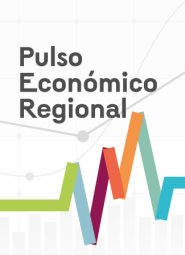Banco de la República's board decides unanimously to begin normalizing monetary policy
The board voted 4-3 to raise the benchmark interest rate by 25 basis points to 2.0%; the three dissenting board members voted for a 50-basis point increase.
This decision was based on the following considerations:
- A recovery in economic activity that was interrupted by roadblocks and a third wave of COVID-19 in the second quarter was restored in the third quarter. A strengthening of demand both domestically and among Colombia's major trade partners would be expected to encourage economic dynamism over the rest of the year, with GDP growth now projected at 8.6% in 2021 and 3.9% in 2022. The higher-than-expected forecasts suggest that excess productive capacity could be closed more quickly than previously anticipated.
- Annual inflation continued on an upward trajectory in August, reaching 4.4%; core inflation (CPI excluding food and regulated items) reached 2.3%. The increase can be explained in large part by domestic and international supply shocks that are expected to be transitory but whose durations may vary. The partial reversion of some price relief measures, amid more dynamic demand and a reduction in excess capacity, would also be a factor.
- The persistence of external shocks, indexation to higher inflation rates on some prices, and a faster-than-expected closure of the output gap have led the technical staff to revise its inflation forecasts upward to 4.5% for the end of 2021 and 3.5% for the end of 2022. Expected inflation has increased, though in the medium term remains close to the target. The increased persistence of supply shocks and their upward effects on prices could distance expectations from the target rate.
- The more positive performance of demand relative to supply has been reflected in an increase in the current account deficit, which according to the technical staff's most recent estimates will reach 5.0% of GDP at the end of 2021, higher than the 3.6% deficit in 2020. This can be explained in large part by a greater trade imbalance on goods and services associated with a significant increase in imports compared to exports. Capital flows, including foreign investment, will provide the primary source of financing, underlining the importance of macroeconomic stability.
- In reviewing the balance of risks the board of directors was cognizant of the significant amount of uncertainty surrounding these forecasts, as well as of the remaining risk of the COVID-19 pandemic once again worsening and affecting recovery in domestic and international demand. The board also recognized the risk of deviation in expected inflation compared to the target becoming a persistent phenomenon that could lead to indexation at higher rates of inflation.





























































